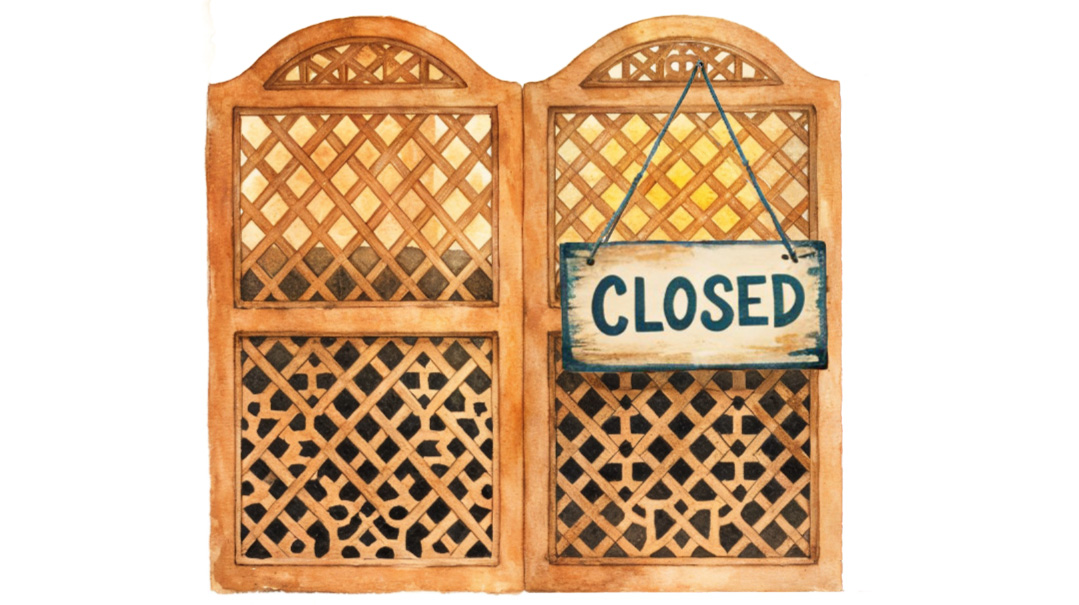Like a Daughter


As told to Aidy Feldman
The plants cave in on me, and I shrink away from them. I feel like screaming: Don’t blame me! This isn’t irreverence, it’s reality! Life!
They stink of death, these leaves, throwing ghostly shadows over worn sofas. I kick another garbage bag aside and grab my cellphone. “Leah, the plants. Can I send them to you? Please?”
Leah hesitates. “Uh…”
And then we’re quiet. I know what she’s thinking; our thoughts cross. These plants were Tante Masha’s life. She spoke to them, dusted them, rearranged their positions. She practically lived for them.
Because what else did she have to live for?
A daughter would have taken them home. Tearfully clutched each pot, transported them, and fondly chosen corners for them.
A daughter would have cried. But me, her niece, I can’t cry. True, I’ve tended to Tante Masha the way a daughter would have; the plants are witness. And yet, I can’t pretend this hodge-podge of feelings is grief.
It’s pain, yes, and pity and confusion and, and… no, not relief, Heaven forbid, no. Just that the burden that has been my life for so many years is no longer. Surely I’ll miss it. I’d done it with my entire heart, like any daughter would have, and I loved her, I did.
That doesn’t mean it had been easy.
Leah stammers excuses, how the plants are so pretty and it’s such a pity, but really, she simply doesn’t have the space for them. I tell her I understand, I totally get her, and together we sigh.
“You’ve been so good to her,” I tell her quietly. “Like a daughter.”
Tante Masha had so many “like-a-daughters.” Ayelet, for one —the wonderful woman who signed up for an Adopt-a-Bubby program years back and became a daily presence in Tante Masha’s life. The neighbors on the block who followed a rotating visiting system. The lovely school and seminary girls who visited her as part of their chesed programs, many of them walking miles on Shabbos afternoons in the heat of Jerusalem summers.
Another garbage bag lands in the hallway. There are nine lined up now, black and humongous.
I continue my work in silence. Through the kitchen — dishrags, mugs, saucers. Sugar canister, sieve. “Dina’la, what are you doing?” Tante’s voice echoes. “The lokshen zeyer goes on the second shelf, why do you move it?”
I shudder. Tante Masha would notice when a doily was a centimeter off. She’d pounce on a dust mite from a mile away. How dare I touch her belongings, callously toss them in trash bags?
Worse, I’m inheriting all this. The jewelry. The silverware. The house, a multi-family Jerusalem house. A windfall. And this makes my heart feel uglier than anything.
It’s not my fault. This is life. Death. Whatever.
It’s in the master bedroom that the tears finally come. In the armoire that reeks of mothballs, three sheitel heads are lined up. White foam faces, ashy hair. I — I can’t touch them.
I collapse on the hard, stone tiles, on the floor that hasn’t a scratch after 60 years of use, and sob. I’m hot and cold and shaky, memories flashing through my head as my fingers dig into my eyes. The hachnasas sefer Torah she celebrated with her husband, like the wedding of a child. A bottle of hairspray must have gone into her teased sheitel in honor of that event. The weddings of my own children, more hairspray and jubilant smiles. Doctor appointments, my arm woven through hers as I supported her up a flight of stairs.
And… and that’s all. I don’t remember more.
(Excerpted from Family First, Issue 622)
Oops! We could not locate your form.













